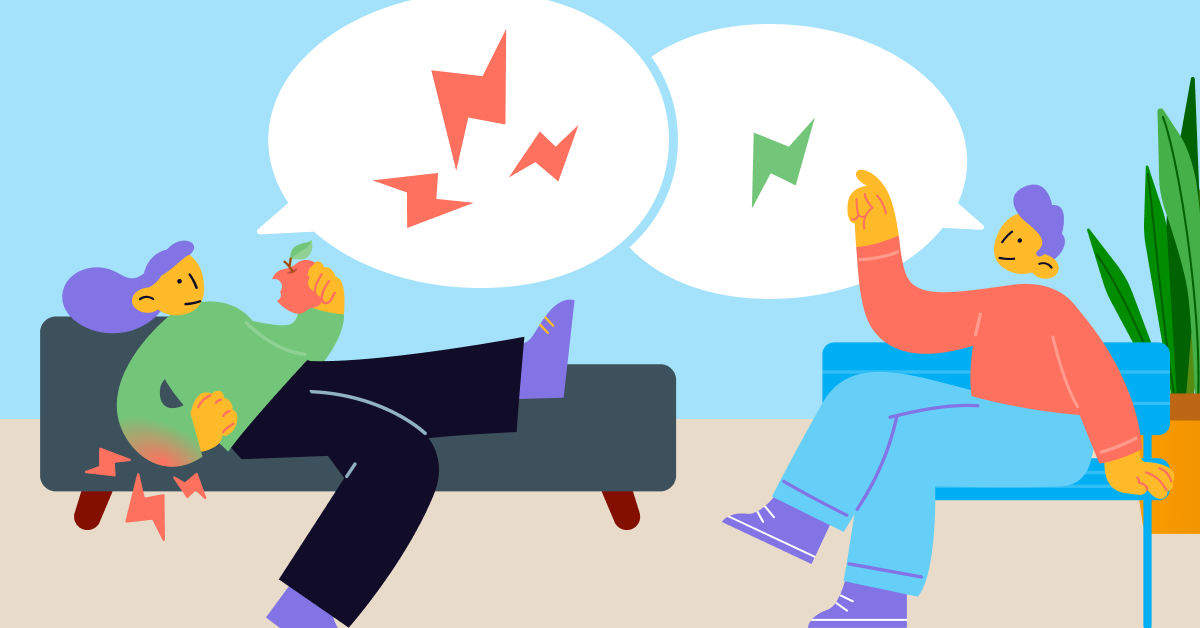When the flare-up strikes
Suddenly it is there; the lack of energy, the pain, the brain fog. A flare-up can feel different for different people, but is about a temporary worsening of the disease. What can you actually do when the relapse is a fact?
A relapse can be triggered by something you do or don't do. Maybe you accidentally overexert yourself, stress at work or miss taking your medicine—that is, things that easily happen to anyone. Or it comes without explanation. You may have done everything by the book, and still you get hit.
The unpredictability of a flare-up can also eat away at us mentally. It can be psychologically painful to be reminded of one's illness. It is also impossible to know how bad it will be this time, or how long it will last.
Be kind to your body
Allow yourself to rest! Lower the demands and park yourself on the couch if you need to. However, be careful not to become too passive—the body can become unnecessarily stiff from inactivity (1) and we know that the right amount of movement can even have a positive effect on pain.
Try to choose nutritious foods. Rather fruit and vegetables and something homemade than processed ready meals and sweets. (See Elsa’s program One should eat—but what? for tips and tricks!)
It's perfectly okay to be sad, down, and annoyed about the situation. Share your thoughts with someone you trust.
Your own documentation
It can also be very helpful to document the flare to see how it develops, when it peaks, and eventually subsides. Use the logging in Elsa and supplement with photos or videos that you can show to your doctor.
When to call your doctor
If the flare-up was triggered by overexertion or by a cold, you can wait and see if it gets better after a few days. If, however, you do not know what caused the flare-up, or if you missed taking your medicine, contact your doctor. (1, 2)
Of course, it also depends on how the shift affects you. If you are suddenly in so much pain that you find it difficult to walk or cannot wear shoes, it is reasonable to seek help. Likewise, if rest and painkillers do not help, or if you suffer from repeated or persistent relapses. (2)
You shouldn't be in pain if there is help to get! A flare-up may be a sign that your medication needs to be reviewed. Therefore, if you are not sure, it is better to let your doctor or nurse know that you are not feeling well.
